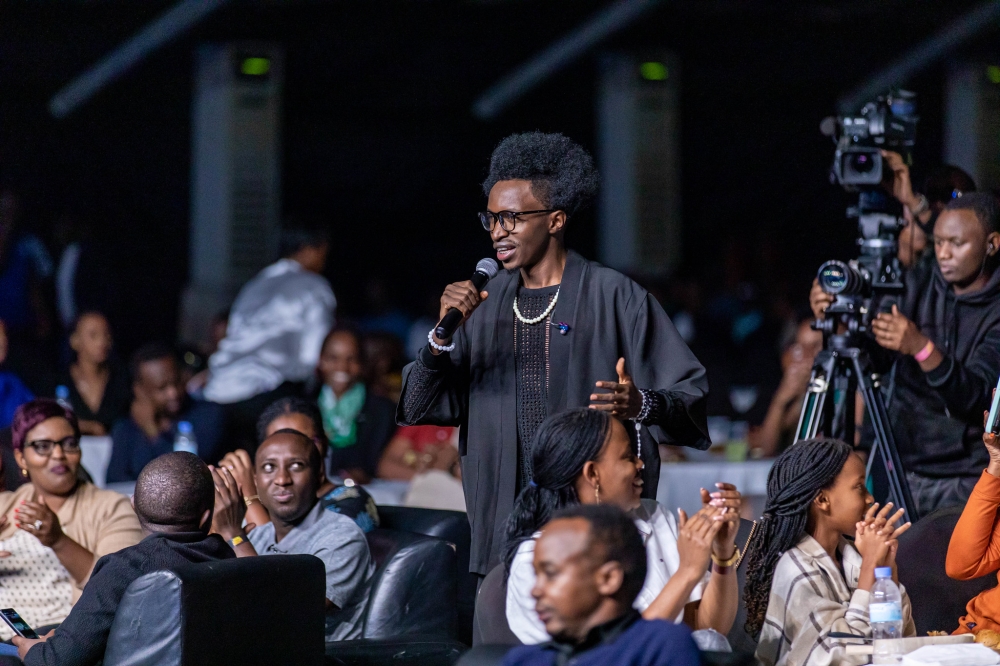

In recent years, modern Rwandan poetry has been evolving, embracing diverse styles and themes. Poets are collaborating with other artistes and participating in international performances and competitions expanding their audience on a broader scale.
Not so long ago, poets faced an uphill battle for recognition but now they are exploring issues such as gender, life experience, inspiration and globalization, while still rooted in cultural heritage.
ALSO READ: How poetry serves as a healing tool for mental issues
The landscape of poetry has been reshaped by technological advancements and the advent of social media among other factors. Poets now wield powerful tools to share their poems and connect with fans across the globe. Platforms like YouTube and Instagram have become virtual stages, where artistes showcase their talent and inspire millions.
"Social media and digital platforms have truly transformed Rwandan poetry. As a poet, it&039;s amazing to see my work reaching people not just in my community but across the world. It is incredible to see how our work can cross borders and resonate with so many people around the world,” renowned Rwandan Junior Rumaga told The New Times.
"Before, poets were, among other challenges, lacking of inspirers and role models in the career. There were no established big figures to look up to, we often struggled to find guidance and motivation which is a different story for now.”
ALSO READ: Poetherapy shows healing power of poetry, connects Rwandan creatives
Carine Maniraguha, a poetess based in Kigali, emphasized the crucial role of effective promotion strategies in the development of poetry.
"Promotion strategies, such as providing dedicated spaces for poets to perform and share their work, have been instrumental in the growth of poetry. These platforms not only offer visibility but also foster a supportive community where poets can thrive and evolve," she said.
"Without strong marketing and outreach efforts, innovative art forms often fail to receive the recognition they deserve, effective promotion is essential for bringing new and creative expressions to the forefront and ensuring they reach a wider audience."
With a newfound recognition comes a wave of opportunities. Poets find themselves collaborating with industry heavyweights, gracing the stages of prestigious events, and even clinching coveted awards.
According to Rwandan prominent poet Sylvestre Nsengimana, poetry has now reached a larger audience, with more people falling in love with it.
"Collaborations with artists such as singers and music producers have allowed us to target a broader audience, extending beyond traditional poetry lovers,” he said.
ALSO READ: How poetry is contributing in telling stories about the Genocide
Additionally, initiatives like Art Rwanda Ubuhanzi and various competitions have been pivotal in promoting new talents, significantly contributing to the growth and development of the poetry industry.
Rwandan musician Mani Martin, who has been part of the panel of judges in the Rwandan talent search initiative said that the remarkable evolution that poetry in modern Rwanda is witnessing is profoundly influenced by the nation's development and the mental liberation of young creatives.
"This new generation is redefining Rwandan poetry with fresh perspectives and innovative expressions,” he said.
"Their creative freedom is changing the poetry and helping us understand and appreciate our cultural heritage more. As poets move beyond historical limits, they are leading a revival in Rwandan poetry that speaks to people both in Rwanda and around the world, highlighting the diverse experiences and dreams we share.”
For university student Monica Uwase, a poetry lover, it's amazing to see how the art form is evolving. More and more incredible poems are being created, blending traditional elements with fresh, modern perspectives.
"t's an exciting time to be a part of the poetry community,” she said.
History of poetry
According to the Rwandan ancient history of arts, poetry has deep roots in the oral traditions of the country.
Historically, poetry was an integral part of Rwandan culture, used in ceremonies, storytelling, and as a means of preserving history and social norms. ‘Ibyivugo’, a form of self-praise poetry, and ‘Imivugo’, poems recited at social gatherings, are examples of traditional poetic forms that have been passed down through generations.
These oral traditions were characterized by their rhythmic and melodic qualities, often accompanied by music and dance. They were not just artistic expressions but also tools for educating the young, resolving conflicts, and fostering community cohesion.


